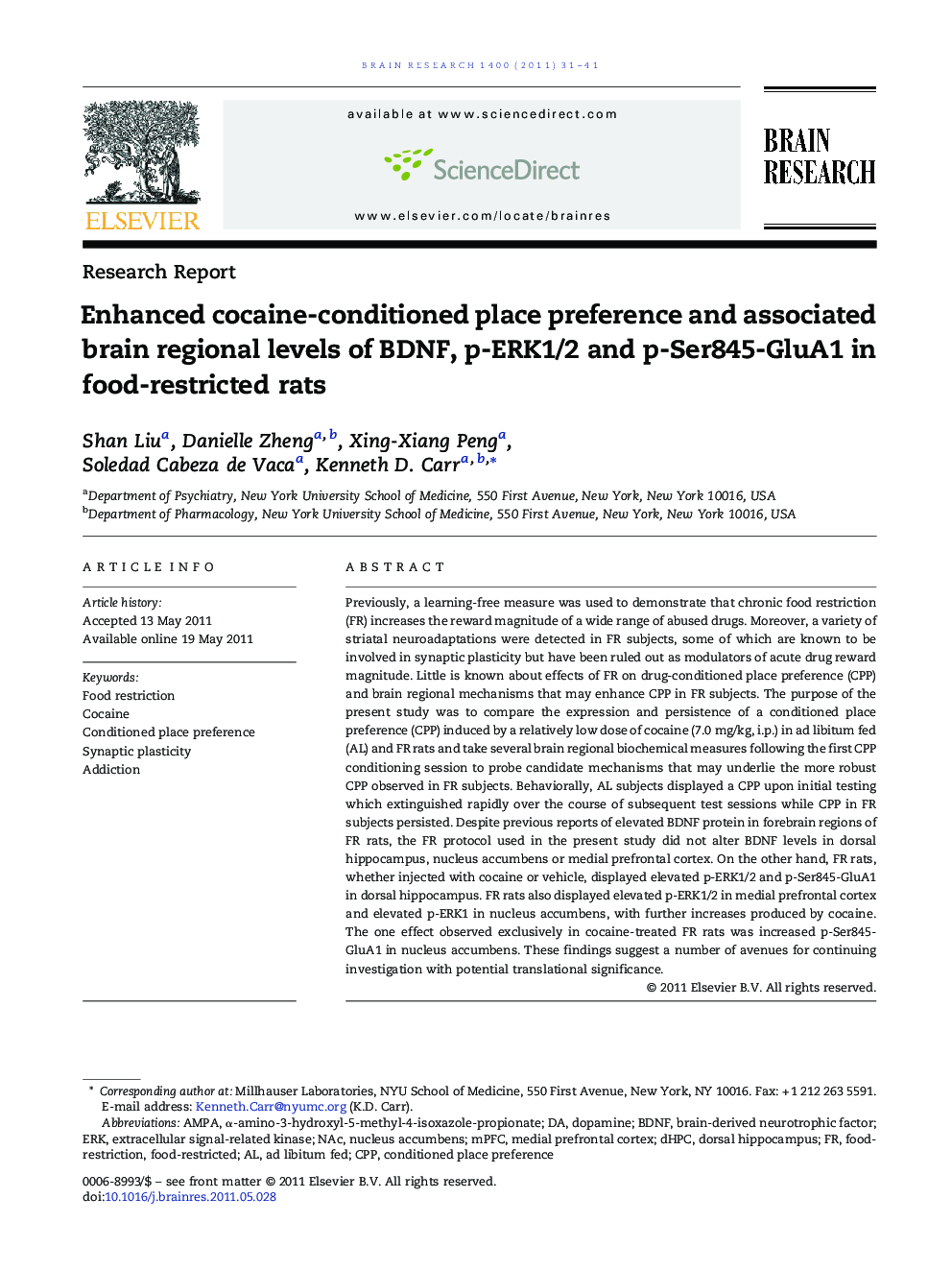| Article ID | Journal | Published Year | Pages | File Type |
|---|---|---|---|---|
| 4325793 | Brain Research | 2011 | 11 Pages |
Previously, a learning-free measure was used to demonstrate that chronic food restriction (FR) increases the reward magnitude of a wide range of abused drugs. Moreover, a variety of striatal neuroadaptations were detected in FR subjects, some of which are known to be involved in synaptic plasticity but have been ruled out as modulators of acute drug reward magnitude. Little is known about effects of FR on drug-conditioned place preference (CPP) and brain regional mechanisms that may enhance CPP in FR subjects. The purpose of the present study was to compare the expression and persistence of a conditioned place preference (CPP) induced by a relatively low dose of cocaine (7.0 mg/kg, i.p.) in ad libitum fed (AL) and FR rats and take several brain regional biochemical measures following the first CPP conditioning session to probe candidate mechanisms that may underlie the more robust CPP observed in FR subjects. Behaviorally, AL subjects displayed a CPP upon initial testing which extinguished rapidly over the course of subsequent test sessions while CPP in FR subjects persisted. Despite previous reports of elevated BDNF protein in forebrain regions of FR rats, the FR protocol used in the present study did not alter BDNF levels in dorsal hippocampus, nucleus accumbens or medial prefrontal cortex. On the other hand, FR rats, whether injected with cocaine or vehicle, displayed elevated p-ERK1/2 and p-Ser845-GluA1 in dorsal hippocampus. FR rats also displayed elevated p-ERK1/2 in medial prefrontal cortex and elevated p-ERK1 in nucleus accumbens, with further increases produced by cocaine. The one effect observed exclusively in cocaine-treated FR rats was increased p-Ser845-GluA1 in nucleus accumbens. These findings suggest a number of avenues for continuing investigation with potential translational significance.
► Food restriction increased persistence of a cocaine conditioned placed preference. ► Food restriction increased phosphorylation of ERK 1/2 and GluA1 in dorsal hippocampus. ► Food restriction and cocaine increased phosphorylation of ERK 1 in nucleus accumbens. ► Food restriction and cocaine increased phosphorylation of ERK 1/2 in prefrontal cortex. ► Food restriction plus cocaine increased phosphorylation of GluA1 in nucleus accumbens.
